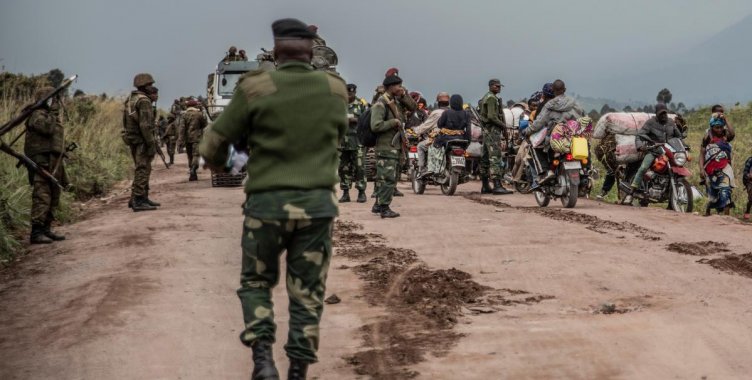João Lourenço addressed the regional political situation, more specifically in the Democratic Republic of Congo, in an interview with French radio RFI, where he also spoke about what he expects from the visit of his French counterpart, Emmanuel Macron, who arrives in Luanda tonight.
The President considered that it is not easy to end the war in that neighboring country and added that since Tuesday contacts between the leaders of the M23 and the Angolan authorities have been taking place, however, without results yet.
"Starting a war, an armed conflict, can start from one day to the next, it's firing the first shot and this conflict has begun, ending this armed conflict, this war, is much more difficult and takes time and is not worth it. It's a shame we have the illusion of thinking that it's easy and that overnight the conflict can be ended", he stressed, giving the example of the war between Russia and Ukraine, a year passed without an end in sight.
"With regard to the DRCongo, it's a bit the same principle, we don't have the illusion of thinking that it will end tomorrow, if it were possible it would be ideal, but the reality is not quite like that", he added.
The M23 offensives have already forced more than half a million people to leave their homes, according to the UN, and triggered an escalation of tension between the DRC and Rwanda, due to Kigali's alleged cooperation with this rebel group.
Angola has mediated the peace negotiations between the two countries, which resulted in the establishment of the so-called Luanda Roadmap.
João Lourenço recalled that at the last summit in Luanda a first cease-fire was reached, "which unfortunately was successively violated".
"We are fighting to achieve a new ceasefire and move immediately to the cantonment of the M23 forces and consequently to the reintegration of the M23 components into Congolese society", he said.
According to the President, at the summit in Addis Ababa Angola was tasked with maintaining direct contact with the M23 to work with them on a ceasefire and the cantonment of forces, which is already happening at the level of the leaders of the movement.
"We still don't have results, they've been happening since yesterday [Tuesday]. The same summit in Addis Ababa also decided that, as soon as the ceasefire is achieved, there should be the deployment of the regional force, from the East African region, which is made up of five countries, of which only one, Kenya in particular, already has its forces on the ground", he indicated.
The lack of financial resources is hampering the presence of Tanzania, Burundi, South Sudan and Uganda, with the Peace and Security Council of the African Union working to mobilize these resources, explained João Lourenço.
Regarding the visit of the French President, Emmanuel Macron, who arrives this Thursday in Luanda, after a visit to Gabon and will have the final stage of his African tour in DRCongo, he said that he hopes it will strengthen relations of friendship and cooperation between the two countries.
João Lourenço highlighted that France has been present in Angola for decades, in the oil sector, but in recent years the country's bet is "to continue to explore oil and gas, but to pay particular attention to other sectors of the economy".
"And this is already happening, fortunately, perhaps not to the extent that would be desirable and on the part of France we count French private investment in almost all sectors of the economy practically outside the oil sector, agriculture, agro-livestock, the transformation of the products of the countryside", he pointed out.
Regarding the oil sector, João Lourenço stressed that three refineries are under construction in the provinces of Cabinda, Zaire and Benguela, as "it is not normal that a country like Angola, which has a large production of oil, did not have until recently capacity to transform at least part of the crude it exploits".
"Angola, in the next three years, will be autonomous in terms of refined oil products. Our objective is to stop importing diesel and gasoline in addition to investing in renewable energy sources", he said.







